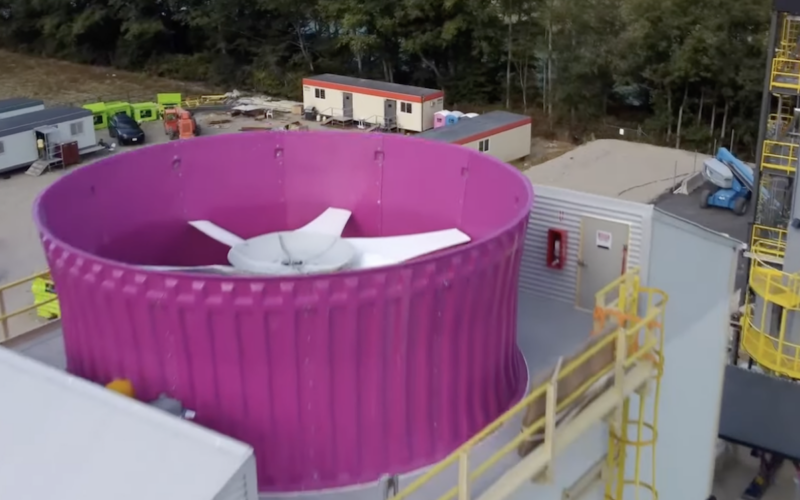On October 9, 2023, easyJet and Airbus announced plans to cooperate in the field of Direct Air Carbon Capture and Storage (DACCS).
But what does this technology involve?
Essentially, it is a matter of capturing carbon particles already in the air, filtering them out and either storing them underground or turning them, through another chemical process, into feedstock for sustainable aviation fuel (SAF).
In 2022, Airbus pre-purchased 400,000 tonnes of of DAC-based carbon removal credits from 1PointFive with the aim of offering them to several airlines that wish to advance their decarbonization goals. easyJet, which has been known to be exploring options in the field of direct air carbon capture for already quite some time, is the first of those airlines to sign a direct carbon removal deal with Airbus within the framework of the “Airbus Carbon Capture Offer”.
These credits will be issued by 1PointFive, a subsidiary of Occidental Petroleum, which is Airbus’s partner for its direct air carbon removal program.
1PointFive, in turn, works together with a Canadian firm called Carbon Engineering, which has developed direct air carbon technology that can be rolled out on an industrial scale.
Carbon Engineering made headlines in August 2023, when it was acquired by Occidental Petroleum in a US$1.1 billion deal.
AeroTime met with Anna Stukas, VP Business Development at Carbon Engineering, on the sidelines of the recent IATA World Sustainability Symposium, in order to learn more about the company’s direct air carbon capture and storage technology and its potential applications within the aviation industry.
It’s a technology that a number of companies in the industry are considering as yet another tool to potentially reduce their carbon footprint, particularly in terms of dealing with hard-to-abate emissions.

